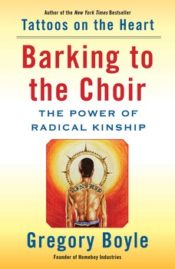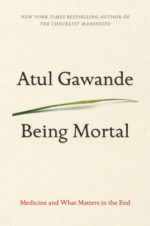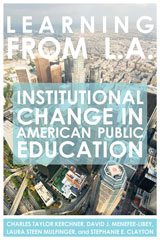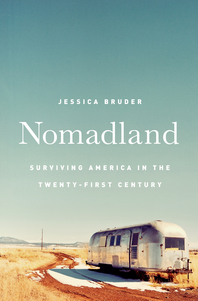Learning 2.0.net: A Way to Create Winners and Increase the Capacity of Public Education
Over the last two years, I have been researching and writing about Learning 2.0, the next full scale version of public education. I started the research to find a way through the political gridlock of education politics, not because I considered myself an expert in learning theory or pedagogical practice. I think I have. In a […]
CAVA: Learning at Home, Not Home Schooling
The California Virtual Academy has grown to become a mid-sized school district, enrolling more than 10,700 students who study at home. But CAVA officials are quick to disclaim that the organization is in the home schooling business. As traditionally understood, home schooling is a vehicle for parents to gain virtually complete control over what and […]
Finding the Intersection of “Be Nice” and “Know a Lot”
No Child Left Behind is apparently disappearing with a whimper, or at least a waiver. The originally bipartisan law has become a bad brand. The pragmatics of the law’s demise rest in its rather silly calculation of test scores, and the backloading of expectations so that in the final years of the law the majority […]
Re-Bundling Teaching, Testing, and Growing Up
We need to rebundle. For the past century, teaching, testing, and growing up have been tied into a bundle called school. My schooling—like that of every other student—was a mixture of maturation and mental exercise, of intense bonding among peers under the watchful eyes of adults, who understood more than we thought they did. An […]
Learning 2.0 So Far: Breakthrough Ideas and Political Deadlock
This spring, I posted Learning 2.0, a short essay on how we might reshape school reform to recognize the tremendous changes in information processing and their implications for teaching and learning. I’ve been gratified by the response. The original post has been reprinted and passed along, which is what I had hoped, and over the […]
The Elements of Learning 2.0: Students as the real workers in education
Most education reforms start with the premise that adults need to work harder so students will learn more. But ultimately, maybe quickly, that premise is self-defeating. Regardless of the pedagogy used, who governs the school, or how long teachers toil, students are the real workers in the system. Building around that reality is one of […]
Insanity or Courage?
Last evening, I had the pleasure of moderating a panel discussion at a reunion of Education Pioneers, an organization that looks for and trains out-of-classroom talent for education reform. The conversational stars of the evening were Maria Casillas, who flunked retirement to rejoin the Los Angeles Unified School District to head its efforts at connecting […]
The Elements of Learning 2.0: A Remix of Knowledge Acquisition and Practice
The words “remix” and “mashup” entered the vocabulary as descriptors of life in the digital age. They are also key to what I am calling Learning 2.0, the next full-scale version of public education. At the simplest level, these new terms are represented by three teenagers using Apple Garage Band to combine bits and pieces […]
“A New Culture Of Learning”: Dewey Redux
Two of the gurus of the Internet age have written a charming, compelling, and ultimately romantic book about what learning could be. In the opening pages of A New Culture of Learning: Cultivating the Imagination for a World of Constant Change, Douglas Thomas and John Seely Brown lay out the dimensions of “arc of life” […]
Understanding the Kahn Academy
In Learning 2.0, I reference the Kahn Academy, the wildly successful and growing open-source video tutoring program. Here Salman Kahn talks about how his video lectures have penetrated regular classrooms. By removing the one-size fits all classroom, the teachers have used technology to humanize the classroom. His TED speech here. Listen to his notions about […]
« go back — keep looking »



